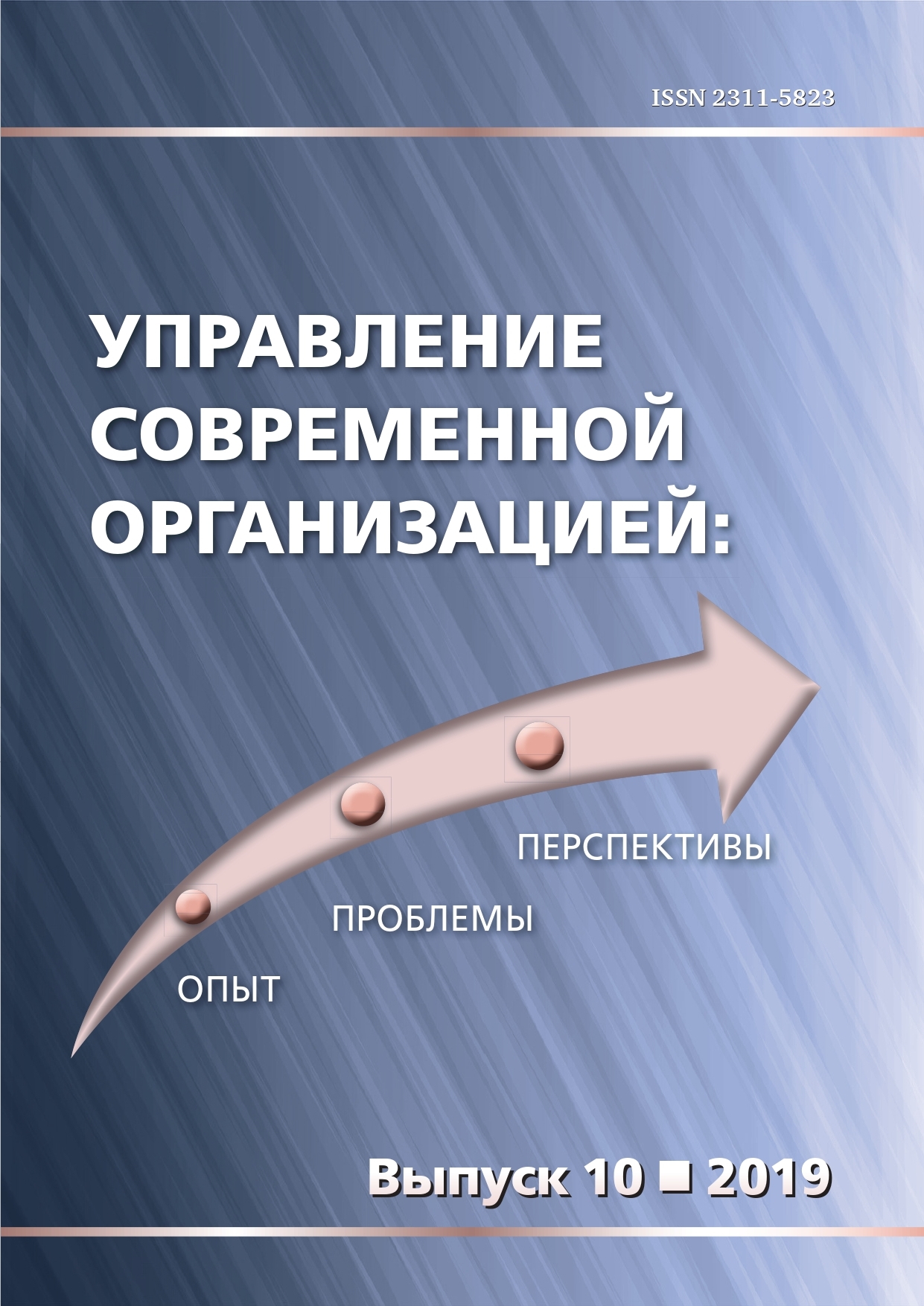Factors of interfirm interaction: theoretical aspects JEL Р13 УДК 334.73.01
Main Article Content
Abstract
The theoretical and methodological aspects of intercompany interaction are investigated, factors of interactionbetween organizations in a competitive environment are identified and systematized.The uncertainty of the external environment and the intensifying processes of globalization draw the attentionof the subjects of market relations to new ways to strengthen competitive positions in the market, to enhancefinancial independence and sustainable development through the development of partnerships. One of the formsof their organization is intercompany networks that increase the efficiency of implementing joint strategies andintroducing innovations. In this regard, the question of theoretical and methodological research remains in thefield of understanding the mechanism of intercompany interaction, and the factors determining its effectiveness.
Downloads
Article Details
References
принимательского стиля руководства // Организатор производства. № 1. С. 25–35. [Borisenko, I. L.,
Borisenko, D. I., Makarov, N. N. (2017). Approach to enterprise management based on entrepreneurial
leadership style. Organizer of production, No. 1, pp. 25–35. (In Russian)].
Краснокутская Л. Н. (2013). Развитие инфраструктуры инновационных предприятий // Актуальные пробле-
мы социально-гуманитарного и научно-технического знания. № 1. С. 101–102. [Krasnokutskaya, L. N.
(2013). Development of the infrastructure of innovative enterprises. Actual problems of socio-humanitarian
and scientific and technical knowledge, No. 1, pp. 101–102. (In Russian)].
Кривошеева-Медянцева Д. Д. (2013). Доверие как фактор экономического развития: исследования с пози-
ций институциональной экономической теории // Terra Economicus. № 2. С. 15–20. [Krivosheeva-
Medyantseva, D. D. (2013). Confidence as a factor of economic development: research from the standpoint
of institutional economic theory. Terra Economicus, No. 2, pp. 15–20. (In Russian)].
Мартынов Л. М. (2012). Инфокомный инструментарий менеджеров высокотехнологичных предприятий
промышленности // Креативная экономика. № 11. С. 70–74. [Martynov, L. M. (2012). Infocomm toolkit
of managers of high-tech industrial enterprises. Creative Economy, No. 11, pp. 70–74. (In Russian)].
Никитаева А. Ю., Писарская О. В. (2016). Сотрудничество промышленных предприятий с разным уровнем
технологичности производства: теоретико-эмпирический анализ // Государственное и муниципаль-
ное управление. Ученые записки СКАГС. № 3. С. 194–201. [Nikitaeva, A. Yu., Pisarskaya, O. V. (2016).
Cooperation of industrial enterprises with different levels of manufacturability: a theoretical and empirical
analysis. State and municipal management. Scientific notes of SKAGS, No. 3, pp. 194–201. (In Russian)].
Пожидаев Р. Г. (2010). Стратегии интеграции: от вертикально интегрированных компаний к межфирмен-
ным сетям // Вестник Воронежского государственного университета. № 1. [Pozhidaev, R. (2010).
Integration strategies: from vertically integrated companies to interfirm networks. Bulletin of Voronezh State
University, No. 1. (In Russian)].
Попов Е. В., Симонова В. Л. (2015). Влияние специфичности активов на межфирменные соглашения // Об-
щество и экономика. № 1. С. 118–135. [Popov, E. V., Simonova, V. L. (2015). Influence of asset specificity
on inter-firm agreements. Society and Economy, No. 1, pp. 118–135. (In Russian)].
Ткачева Е. Н. (2009). Проблема поиска партнеров и инициации связей между ними в виртуальных органи-
зациях // Проблемы экономики и юридической практики. № 3. С. 235–238. [Tkacheva, E. N. (2009).
The problem of finding partners and initiating relationships between them in virtual organizations. Problems
of economics and legal practice, No. 3, pp. 235–238. (In Russian)].
Трошихин В. В. (2013). Стиль управления как система экономического и социокультурного сотрудниче-
ства в организации // Russian Journal of Management. № 6. С. 301–309. [Troshikhin, V. V. (2013).
Management style as a system of economic and socio-cultural cooperation in the organization. Russian
Journal of Management, No. 6, pp. 301–309. (In Russian)].
Хутыз З. А. (2014). Особенности управления взаимоотношениями с потребителями: региональный аспект //
Новые технологии. № 2. С. 133–138. [Khutiz, Z. A. (2014). Features of customer relationship management:
a regional aspect. New technologies, No. 2, pp. 133–138. (In Russian)].
Чванов А. О. (2016). Экономическое содержание философского термина «доверие» как значимая категория
маркетинга // Вестник молодых ученых Самарского государственного экономического универси-
тета. № 1. С. 202–206. [Chvanov, A. O. (2016). The economic content of the philosophical term «trust» as
a significant category of marketing. Bulletin of young scientists of the Samara State University of Economics,
No. 1, pp. 202–206. (In Russian)].
Чувелева Е. А., Затепякин О. А. (2016). Воспроизводственная природа корпоративных слияний и поглоще-
ний в нефинансовом секторе экономики // Вестник Томского государственного университета. Эко-
номика. № 1. С. 172–201. [Chuveleva, E. A., Zatepyakin, O. A. (2016). Reproductive nature of corporate
mergers and acquisitions in the non-financial sector of the economy. Tomsk State University Bulletin. Economy,
No. 1, pp. 172–201. (In Russian)].
Яловенко А. С. (2015). Рыночная привлекательность как составляющая экономической безопасности // Акту-
альные проблемы социально-гуманитарного и научно-технического знания. № 2. С. 73–75. [Yalovenko,
A. S. (2015). Market attractiveness as a component of economic security. Actual problems of socio-humanitarian
and scientific and technical knowledge, No. 2, pp. 73–75. (In Russian)].

